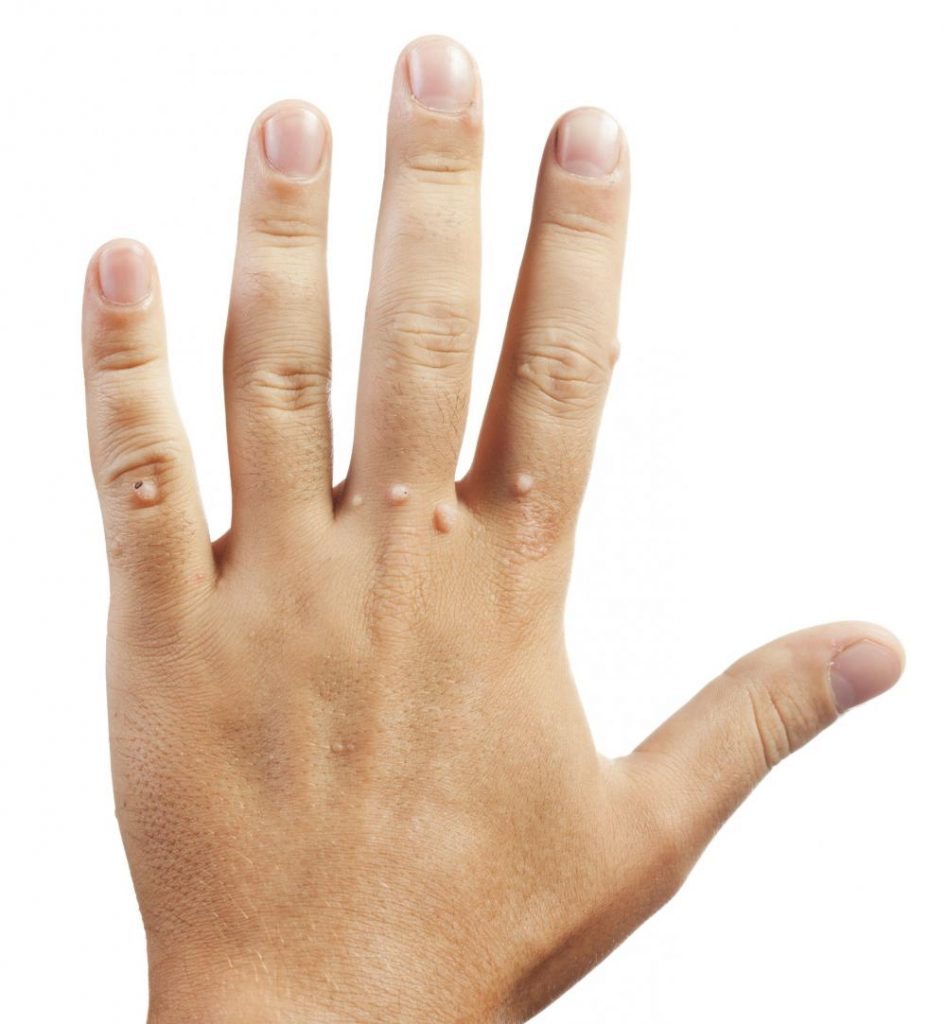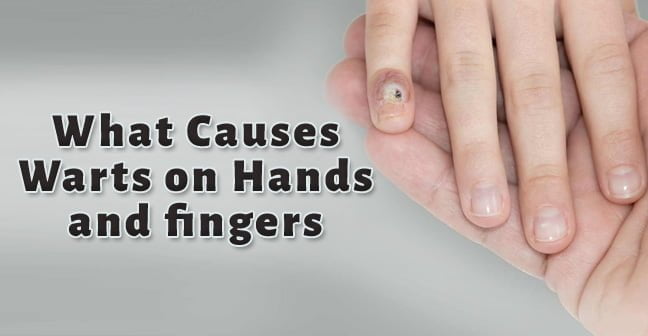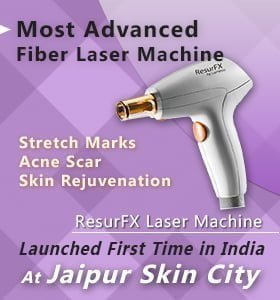What Causes Warts on Fingers and toes? “How to get rid of warts on hands?” Are easily some of the most common questions amongst people infected by human papillomavirus (HPV).
Hands are the most exposed and most used part of the body. The skin on them often succumbs to environmental threats, viruses, bacteria, and fungi.
Viral infections that cause the growth of warts are most rapidly transmitted in humid, warm places, such as swimming pools, saunas, locker rooms, public bathrooms, and showers. Looking at this list, there is no surprise why our hands, and even feet, are first to get infected by HPV.

What Causes Warts on Fingers & Hands?
Warts on hands have been recognized as benign (non-cancerous) outgrowths caused by human papillomavirus (HPV). Scientists have monitored more than 100 different types of HPV, of which, types: 1-5, 49, 57, 19-24, 26 -29, 1, 12, 10, 14, 15, 17, 19 cause hand and plantar warts.
Such vast spectrum of different HPV strains may seem scary and concerning, but the severity of every HPV infection still depends on one’s immunity. A strong and healthy body is more likely to stop the proliferation and progression of the infection.
But when the body defense is weak they start becoming visible.
Warts on hands are caused by a viral infection that occurs when HPV agents enter the bloodstream through little openings, cuts, scratches, and cracks in the top layer of the skin known as the epidermis. DNA of the virus causes abnormal cell proliferation accompanied by the increased blood flow. Both circumstances promote the growth of skin cells, which we see as protruding, flat and even concaved outgrowths on the skin. The growth of warts can be immediate, appearing within 1 to 2 weeks, or delayed for several months.
Why is It Important to Treat Warts on Hands?
Warts are extremely contagious, and even if they are not painful or dangerous they still must be treated in time. Here are some reasons that will encourage you to find appropriate wart removal treatment:
- You can spread the infection to other healthy parts of your body.
- You can spread the infection to other people.
- Accidental injury, abrasion or tear of the outgrowth located on your hand can lead to secondary infections, the spread of HPV and other complications.
- This all look odd cosmetically.
It is important to mention that medically approved treatments and folk remedies don’t guarantee full recovery. Viral infections can be persistent and stubborn. If the body’s immune response is not any different after the removal of warts than it was at the beginning of infection, there is a high chance that wart outbreaks will reoccur on the same spot or another area of the body.
You should see a doctor when/if:
- your warts on hands are painful and change color,
- you notice pus infection or bleeding,
- you are a diabetic or immune deficiency patient affected by warts,
- you are not 100% sure that the outgrowths on your hands are warts,
- multiple small warts appear around the main, mother wart,
- wart on your hand or finger is getting in your way and is constantly exposed to abrasion, friction, and risk of strain.
How Will a Doctor Treat My Warts?
It depends. Two quick options that do not cause too much discomfort are freezing the skin wart with liquid nitrogen or burning it off.
Salicylic acid
If your wart outbreaks on hands are not as severe, your doctor may simply advise you to apply salicylic acid to the affected area on regular basis, until warts disappear.
The salicylic acid treatment usually last 1 to 3 weeks and shows best results when a wart is soaked in warm water prior to each application. It is best for you to apply the salicylic acid on affected areas with a cotton swab. Most importantly, avoid contact with the healthy skin surrounding the wart. You can protect it with a little bit of cream.
RF caurtery
When in doubt, have your doctor remove the wart by cutting it out surgically. This is something best left to a doctor, to prevent infection, and so that a local anesthetic can be used to mitigate the pain. here the doctor burns the wart with an electrical current and cuts it out afterward.
Other options include surgical removal of the wart and the injection or application of certain drugs that strengthen your immune system’s response to the wart. In some instances, your dermatologist will use the laser to treat especially stubborn warts, although there is no evidence that this form of treatment works any better than other treatment options.
Conclusion
The treatment of warts and HPV infection requires patience and persistence. The key to success lies in the effectiveness of chosen removal method as well as the timing. Eradication of warts at an early stage will help you prevent new infections and other skin complications. Needless to say, the removal of one wart is much easier and cheaper than the removal of a dozen of them.
For more discussion, meet the Best Dermatologist In Jaipur, Dr Sachin Sharda, in Jaipur skincity, a well-known centre for all your dermatological concerns.



